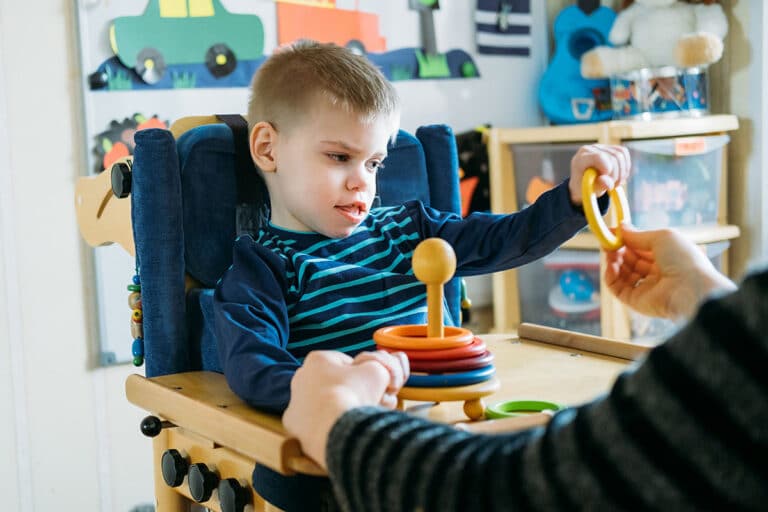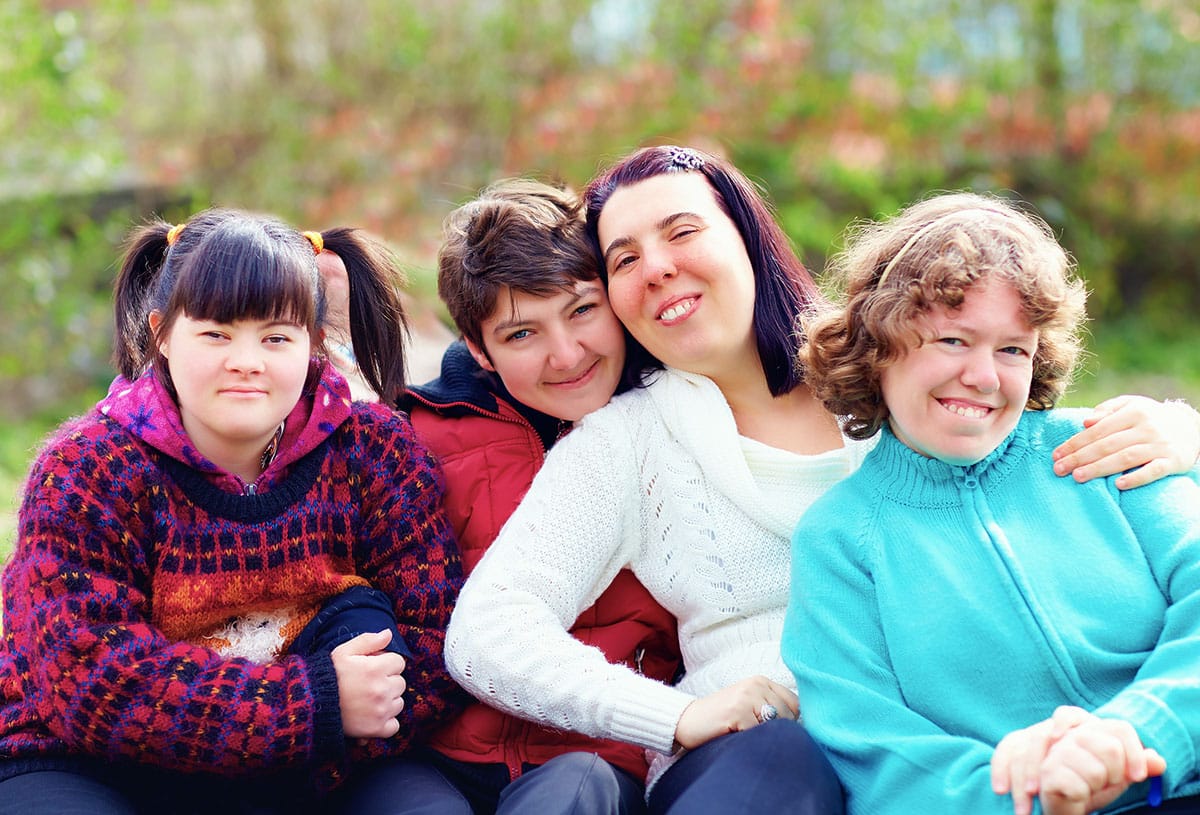Support and services can be built and tailored around your entire family’s needs. For example in-home support, home health and respite services can be of benefit to everyone in the household and are specific to each family’s unique circumstances. Remember, by helping yourself and your family, you become a stronger advocate for your child. The right supports can make your life a little easier.
Behavior Supports
All children have challenging behaviors or lose control from time to time. But some children with developmental disabilities may rely on behavior, rather than words, to communicate their needs and desires. Sometimes the behavior they choose makes it difficult to be included in family, school, and community activities.
If your child is experiencing these difficulties, help is available in many forms — from private counseling to in-home behavioral supports. Communities vary in the resources available. To identify a need and then what type of support for behaviors might be appropriate for your child, start with a screening tool.
When choosing someone to work with you and your child on behavioral issues you may want to ask if they are experienced working with children similar to your child’s needs. Some of the questions to ask or criteria to think about may be:
- What ages of children do you have experience working with?
- How long have you been working with this population?
- What areas of diagnosis specialties are you more familiar with?
- What behaviors have you worked with?
Psychologists, Psychiatrists, and Licensed Social Workers are trained therapists that provide individual and family counseling. These professionals may be in private practice or located at a Community Mental Health Center or hospital. You may also be able to access other services such as a play therapist or therapy for Applied Behavior Analysis (ABA), depending on need and geographic location.
To help you select a therapist experienced in working with children with special health care needs, contact your DDRC Coordinator, Medical Home physician, Stone Soup Group, Infant Learning Program, school staff, or other parents of children with special needs.
Respite
Respite is care provided to a child with special health care needs by a specially trained person. It is meant to give you a break from your caregiver role. Respite can be a few hours or a longer time such as a family vacation. Respite can be an important part of caring for children with special health care needs. Being a good parent means taking care of yourself too.
A Stone Soup Group Parent Navigator can help start the process for finding a good respite provider or agency.
For other contact numbers in your community, call the Division of Senior & Disabilities Services (SDS): Anchorage 269-3600 or Toll free 1-800-770-3930 TDD 269-3624
Peer & Parent Support
For emotional support and information, Stone Soup Group knows connecting with other parents and family members of children with special needs can be of great benefit. This is why we facilitate connections with other families, beyond Parent Navigators. Through the Mentor, Advocate, Partner (MAP) Program we train “seasoned” family members to provide support to other families. Contact us to become a supporter or be connected with another family.
Support Groups
Parents of children with special health care needs are often each other’s best advisers and allies. They are a valuable source of information and insight. Together, you can create changes and advocate for the best possible life for your children. For information about parent groups in your area, contact Stone Soup Group. Based your particular need or interest we can connect you to the right group just when you need it. Stone Soup Group offers a monthly support group, Building Strong Parents. Register today for the next session!
A Parent Navigator will have ideas and contacts for your teen or young adult as well. Support groups, social skills groups and activities geared for this age group are occurring in many areas of the state, at various times of the year. Each month, Stone Soup Group holds a Souper Gaming Night to provide an opportunity for youth and young adults who experience developmental differences to socialize and have fun in a safe and supportive way. Contact us today to find out more.
Recreation
Play is important to our health. There are programs designed to get children with special needs involved in recreational activities. Some of these programs have specialized equipment and training to get a child out snow or water-skiing, horseback riding, swimming, playing team sports or joining in craft or cooking activities. Resources to check include municipal recreation programs, community schools and summer programs for children, scouting, and Special Olympics.
Ask your IEP team, your Parent Navigator or Care Coordinator for ideas. They may also have recommendations for funding some of the activities that may cost a little more.









